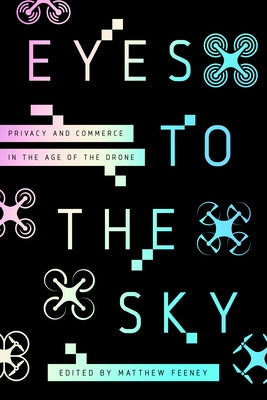This book is a vital addition to understanding the way forward for drones in our national airspace. --Jeramie D. Scott, senior counsel, Electronic Privacy Information CenterDrones are among the most exciting and promising new technologies to emerge in the last few decades. Photographers, firefighters, filmmakers, engineers, and retailers have all used drones to improve public safety, innovate, and enhance creativity. Yet drones pose unique regulatory and privacy issues, and lawmakers at the federal and state levels are adopting policies that both ensure the safety of our national airspace and restrict the use of warrantless aerial surveillance. At a time when low-flying drones are affordable and ubiquitous, how useful are the airspace regulations and privacy laws designed for traditional airplanes and helicopters? Is there a way to build a regulatory and legal environment that ensures entrepreneurs and hobbyists can safely use drones while also protecting us from intrusive aerial surveillance? In Eyes to the Sky: Privacy and Commerce in the Age of the Drone, experts from legal, regulatory, public policy, and civil liberty communities tackle these pressing problems. The chapters in this volume highlight not only what we can learn from the history of drone regulation but also propose policies that will allow for an innovative and dynamic drone sector while protecting our privacy. As drone technologies rapidly advance, Eyes to the Sky offers readers the current state of drone capabilities and regulations and a glimpse at exciting and disturbing uses of drones in the near future.
Author: Matthew FeeneyPublisher: Cato Institute
Published: 08/24/2021
Pages: 250
Binding Type: Hardcover
Weight: 1.10lbs
Size: 9.10h x 5.90w x 1.20d
ISBN13: 9781952223082
ISBN10: 1952223083
BISAC Categories:-
Technology & Engineering |
Aeronautics & Astronautics-
Law |
Air & Space-
Law |
ConstitutionalAbout the Author
Matthew Feeney is the director of the Cato Institute's Project on Emerging Technologies, where he works on issues concerning the intersection of new technologies and civil liberties. Before joining Cato, Matthew worked at Reason magazine as assistant editor of Reason.com. He has also worked at The American Conservative, the Liberal Democrats, and the Institute of Economic Affairs. His writing has appeared in The New York Times, The Washington Post, HuffPost, The Hill, the San Francisco Chronicle, the Washington Examiner, City A.M., and others. Matthew received both his B.A and M.A in philosophy from the University of Reading.





